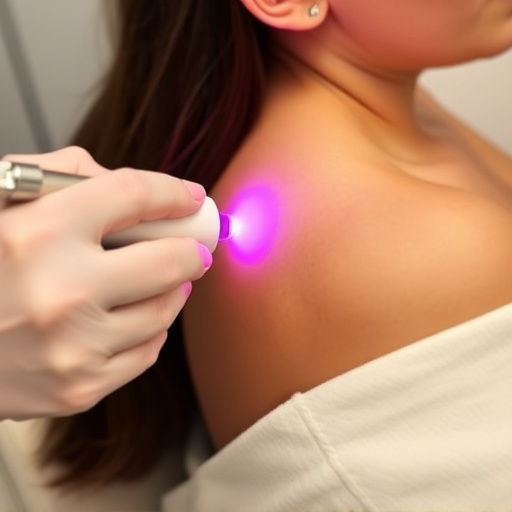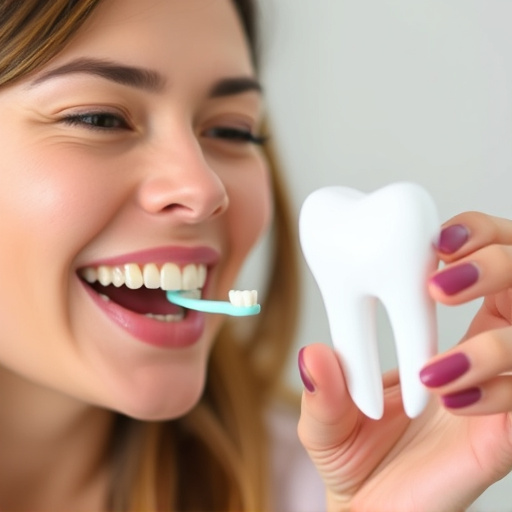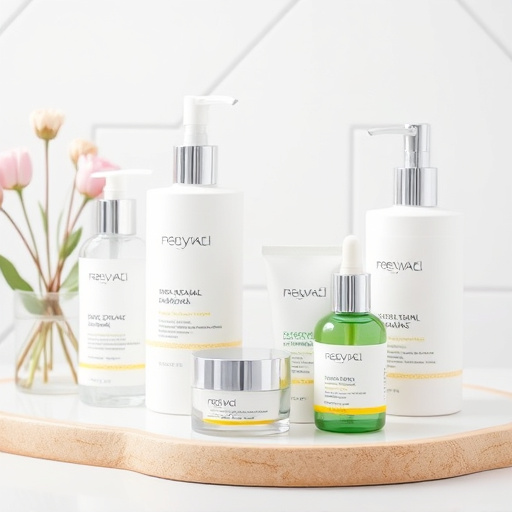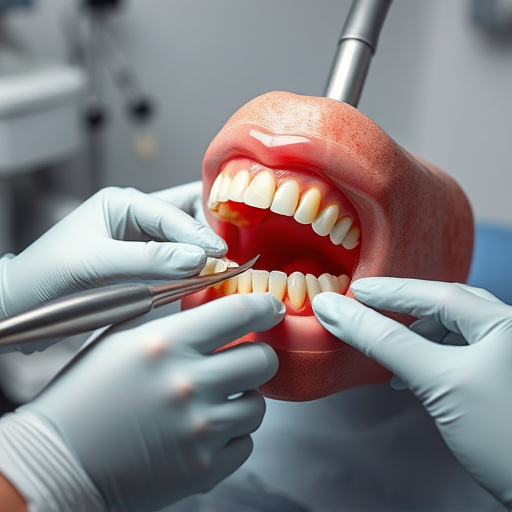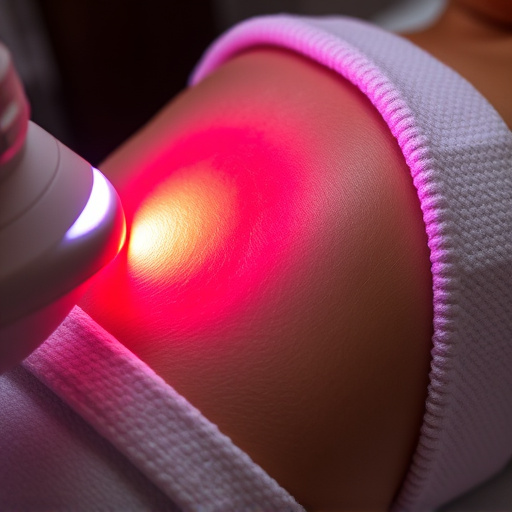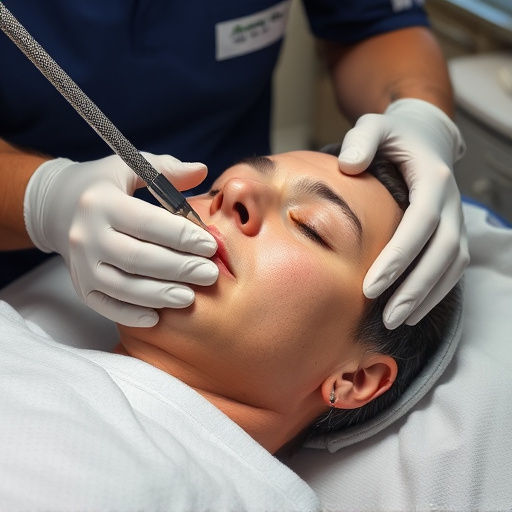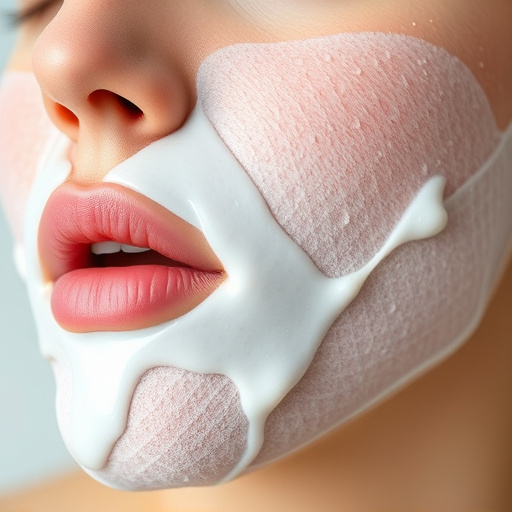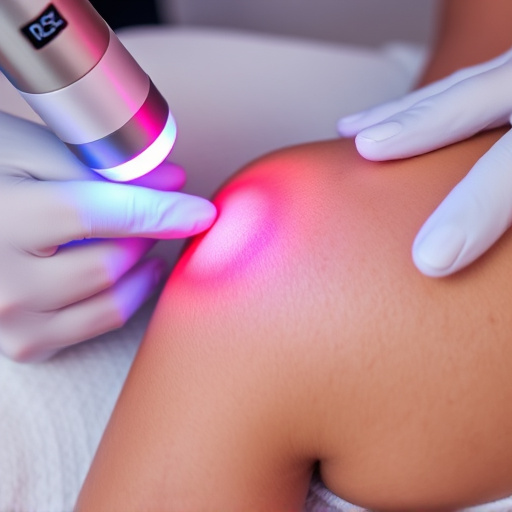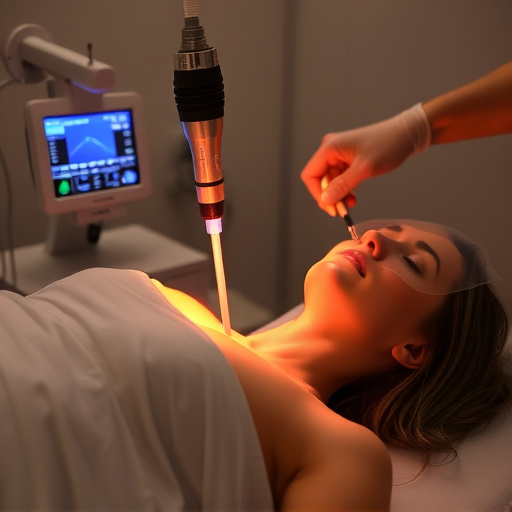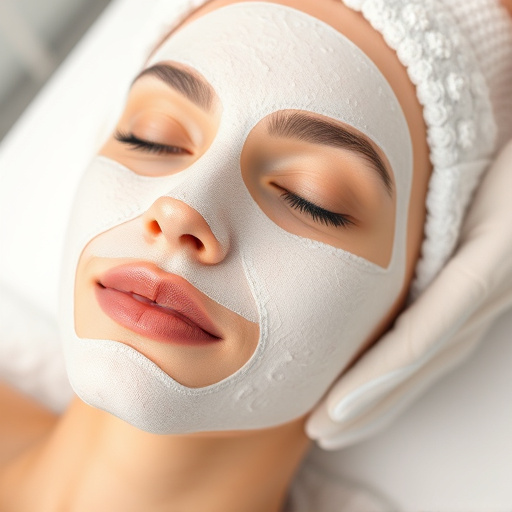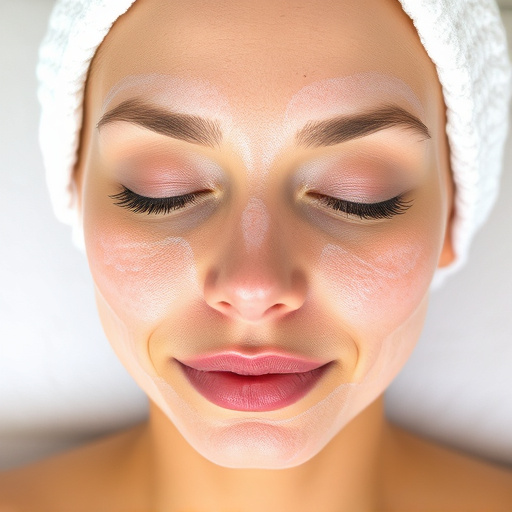Acne scar treatment involves understanding scar types (atrophic/hyperpigmented) and choosing from various options: topical treatments like retinoids, vitamin C, niacinamide; professional procedures such as chemical peels, laser therapy, microneedling; or surgical/non-surgical methods for stubborn cases, all aimed at stimulating collagen production and improving skin texture.
Acne scars can leave lasting marks on your skin, but fear not—there are effective solutions for achieving clear, radiant skin again. Understanding how acne scars form is the first step towards choosing the best treatment. This article delves into two primary categories: topical treatments for immediate relief and surgical/non-surgical procedures for persistent scars. We explore a range of options, from over-the-counter creams to advanced medical techniques, ensuring lasting visible results.
- Understanding Acne Scar Formation and Treatment Options
- Topical Treatments for Visible Acne Scar Reduction
- Surgical and Non-Surgical Procedures for Persistent Scars
Understanding Acne Scar Formation and Treatment Options
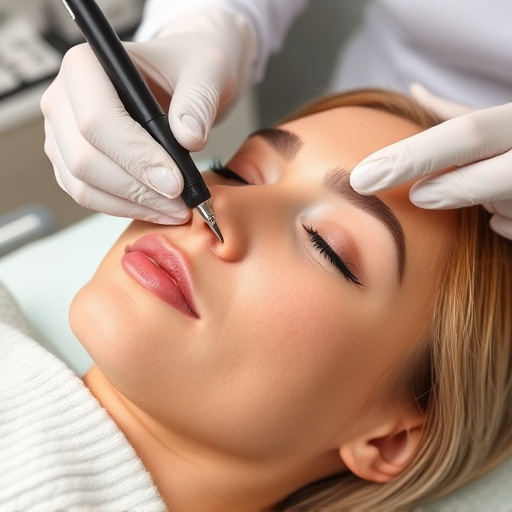
Acne scars form when the skin’s collagen is damaged during an acne flare-up. This can result in depressions or raised areas on the skin, depending on the severity of the inflammation. Understanding how acne scars develop is crucial to choosing the right treatment. There are various types of acne scars, including atrophic scars (depressed scars) and hyperpigmented scars (darkened spots).
Treatment options for acne scars have evolved significantly, offering hope for achieving clear and even skin once again. Facial treatments like chemical peels, laser therapy, and microneedling can stimulate collagen production and improve skin texture. Personalized skincare routines incorporating specific active ingredients, such as vitamin C and niacinamide, can also help fade hyperpigmentation and promote a more uniform complexion. Additionally, products focusing on skin brightening may be beneficial in reducing the appearance of both acne scars and post-inflammatory hyperpigmentation.
Topical Treatments for Visible Acne Scar Reduction
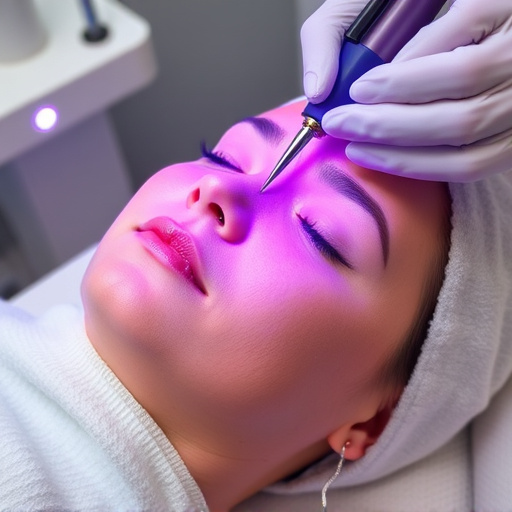
Topical treatments offer a range of effective solutions for visible acne scar reduction. Products containing ingredients like retinoids, vitamin C, and niacinamide can help stimulate collagen production, improve skin texture, and fade scars over time. These creams and serums create a protective barrier, encouraging healthy skin cell turnover while reducing the appearance of depressed or raised scars.
One popular option is chemical peels, which use concentrated acids to exfoliate the skin, revealing smoother and more even-toned skin beneath. Facial treatments like microdermabrasion and laser therapy are also common choices for those seeking professional acne scar treatment. These procedures combine with topical applications to enhance results, leaving skin feeling rejuvenated and looking dramatically improved.
Surgical and Non-Surgical Procedures for Persistent Scars
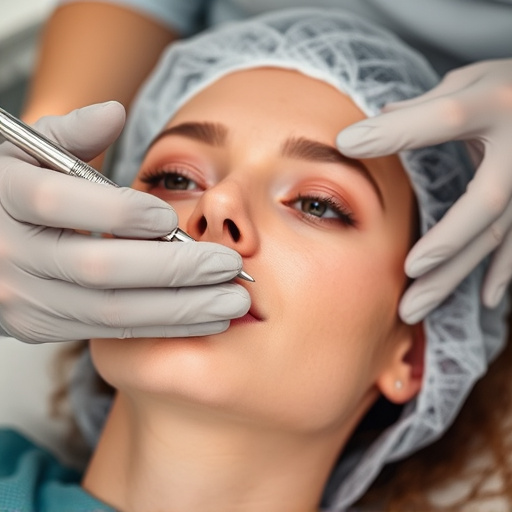
For persistent acne scars that don’t respond to topical treatments, surgical and non-surgical procedures offer effective solutions. Surgical options include subcision, where a doctor gently breaks up scar tissue under the skin’s surface, and punch excision, which involves removing shallow scars with small punches before stitching the area. These methods are suitable for deep or raised scars, providing significant improvements in appearance.
Non-surgical treatments like microneedling therapy have gained popularity. This procedure uses fine needles to create tiny punctures in the skin, stimulating collagen production and enhancing skin texture. Other options include chemical peels, which remove outer layers of damaged skin, and laser therapy, targeting specific pigments and textures to reduce scarring. Medical spa services often offer these advanced treatments, focusing on improving skin health and achieving lasting, visible results for acne scar management.
When it comes to achieving lasting visible results for acne scars, understanding your skin’s unique needs is key. After exploring topical treatments and surgical/non-surgical procedures, you’re equipped with valuable knowledge to make an informed decision. Remember, consistent care and seeking professional guidance are essential for optimal outcomes. Embrace the journey to clearer, more confident skin with the best acne scar treatment tailored just for you.

